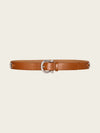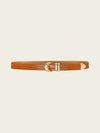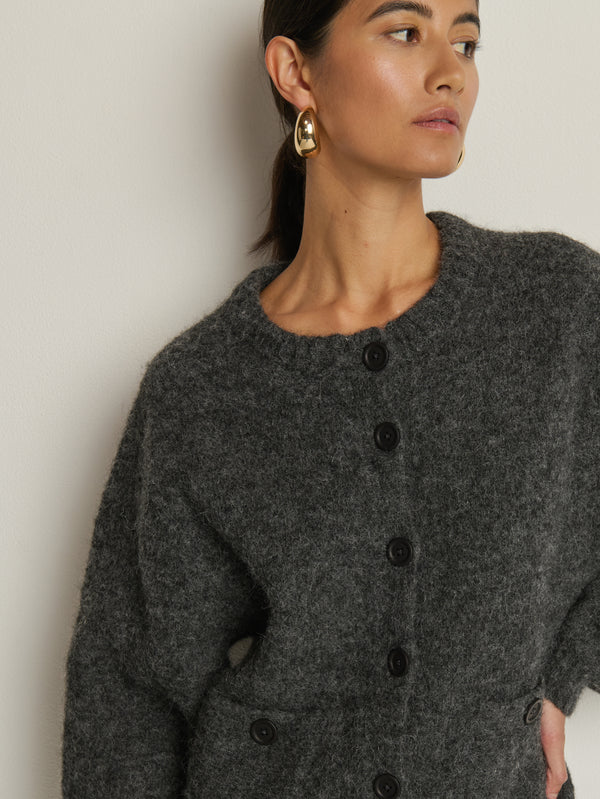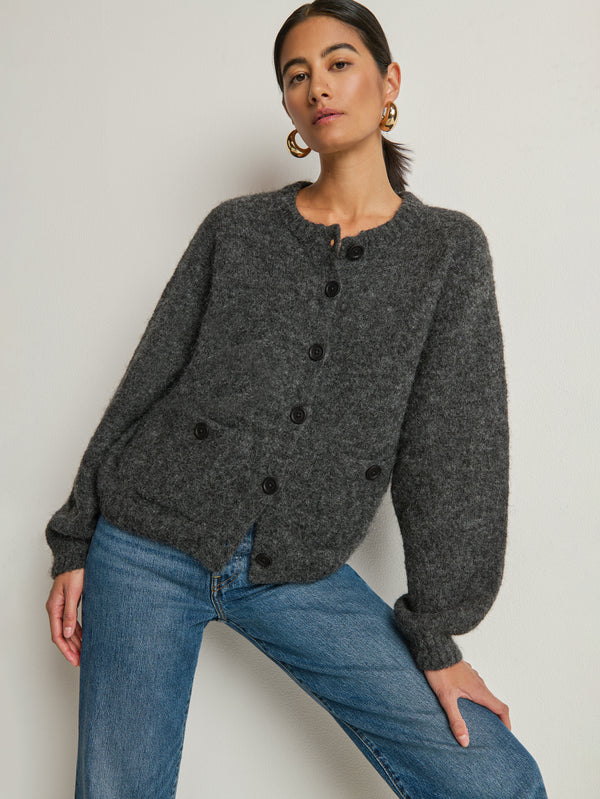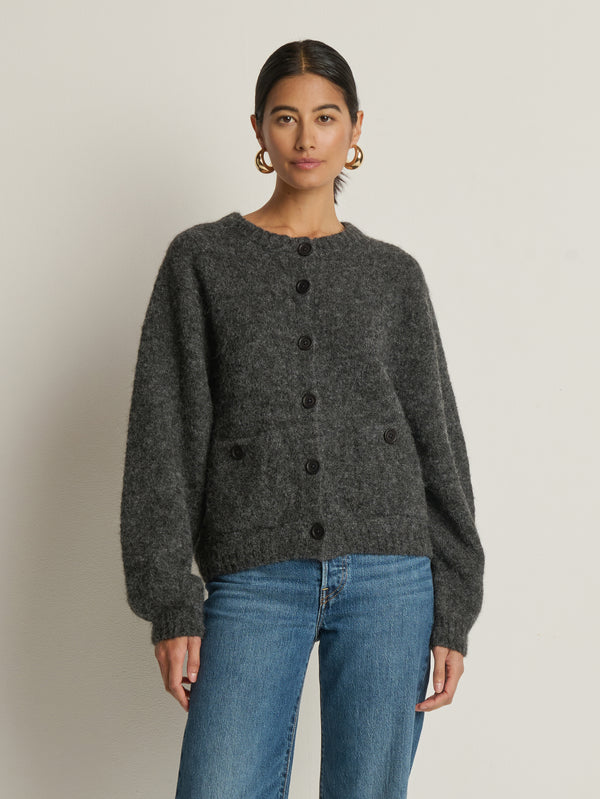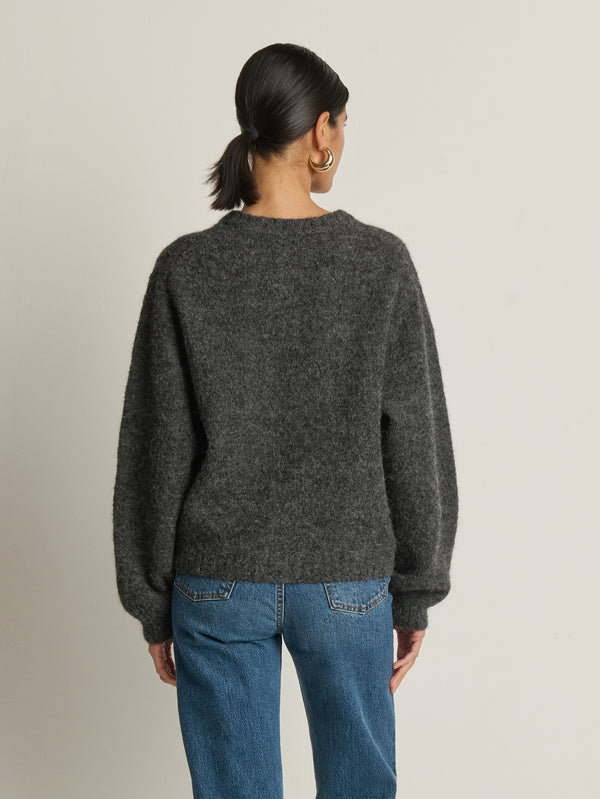Tessa Cardigan
$298
The Tessa Cardigan wraps you in luxe warmth with a relaxed silhouette—crafted from alpaca and merino wool for soft texture and effortless layering. A crew neck and bishop sleeves balance comfort and style, while the ombre effect adds subtle depth to this timeless piece.
This one comes in Heather Charcoal.
Cozy and mid-weight with a fuzzy, brushed surface. Feels plush, looks polished.
Contents: 89% Alpaca 11% Recycled Polyesteramide
Construction: Knit
Fabric Weight: Midweight
Sheerness: Not Sheer
Stretch: Lots of Stretch
Care: Wear More, Wash Less
We highly recommend taking your knits to an environmentally-friendly dry cleaner once a season - unless you love shrunken sweaters. Also opt for an eco-friendly fabric spray to freshen your knit between wears.
All sweaters pill no matter what, so have a sweater stone or fabric shaver ready. Always fold sweaters instead of hanging them, since hanging will warp the fabric over time.
Made in: Peru
B | Moderate
Incorporates renewable materials or low-impact practices but lacks complete traceability or full optimization in sourcing and production.
Landfill time: Natural fiber portion (Alpaca/Wool): In ideal, aerobic (oxygen-rich) composting conditions:
~3–12 months (especially when undyed, untreated, and pure)
In typical landfill or anaerobic environments:
~1–5 years (due to compacted soil, lack of oxygen, and potential fabric finishes)
Synthetic Portion (Polyesteramide, Acrylic, etc.): 40–200 years depending on oxygen exposure and material structure
What We Love:
Alpacas roam freely in the Peruvian Highlands; shorn once a year in spring following humane protocols from the Ministry of Agriculture.
Local farm-to-garment or vertically integrated supply chains reduce emissions.
Natural fibers regulate temperature, resist odor, and offer long-lasting wear.
Some synthetics are recycled, slightly reducing virgin material use.
What We Don't Love:
Synthetic fibers greatly extend landfill life and reduce compostability.
Blends cannot be easily recycled or biodegraded.
Synthetic content contributes to microplastic pollution.
Recycled content, while better than virgin, still has end-of-life limitations.
This Item Ships Free



































